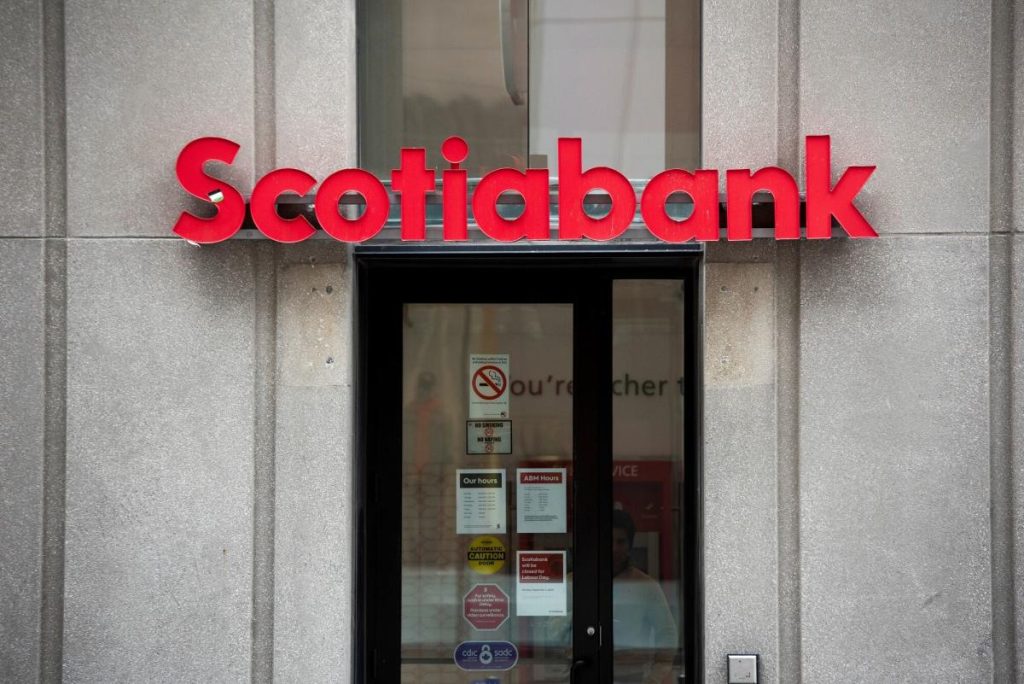
(Bloomberg) — Bank of Nova Scotia’s shares had their biggest drop in more than a year after the lender missed earnings estimates on higher-than-expected expenses and taxes.
Most Read from Bloomberg
The Toronto-based lender, which also reported lower profits in its capital-markets business, pared some of its decline by late morning but remained the worst performer on the S&P/TSX Composite Index on Tuesday. Its shares were down 3% to C$77.40 at 11:35 a.m., and earlier fell as much as 4.9%, their biggest drop in intraday trading since November 2023.
Scotiabank earned C$1.57 per share on an adjusted basis in its fiscal fourth quarter, according to a statement Tuesday, less than the C$1.60 average estimate of analysts in a Bloomberg survey. Scotiabank’s results also included a one-time impairment charge of C$379 million ($270 million) related to its investment in Bank of Xi’an Co. in China.
It’s been almost one year since Chief Executive Officer Scott Thomson announced a new strategy, which has seen the bank prioritize investments in Canada, the US and Mexico over its Latin American operations and try to win more customers with multiple products.
“Our results demonstrate both early progress and areas where more work needs to be done,” Thomson said on a conference call with analysts. “Overall, earnings grew marginally in 2024, consistent with our expectations.”
He reiterated the bank’s guidance for between 5% and 7% earnings growth in fiscal 2025 and said he expects Scotiabank will resume dividend increases “over multiple years” as earnings grow.
Scotiabank’s non-interest expenses totaled C$5.3 billion for the three months through October, more than the C$4.85 billion average estimate of four analysts in a Bloomberg survey. The bank cited higher performance-based compensation, technology and advertising costs as well as taxes.
The firm has worked to slash costs in its international division over the past year as it looks to improve productivity in the region, which includes operations in Mexico, Peru, Chile, Colombia and the Caribbean. It’s also trying to rein in expenses in its domestic business.
Jefferies Financial Group Inc. analyst John Aiken said in a note to clients that the share-price decline on the earnings miss was to be expected, but “as the market parses through the numbers the fact that the bulk of the disappointment centers around a higher-than-expected tax rate should garner some relief.”

